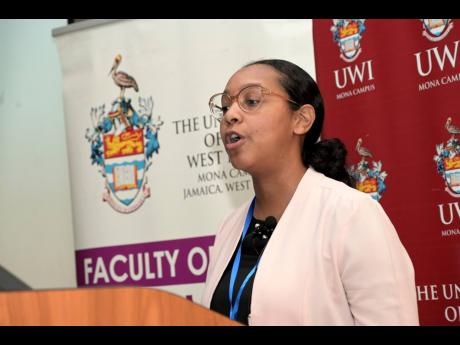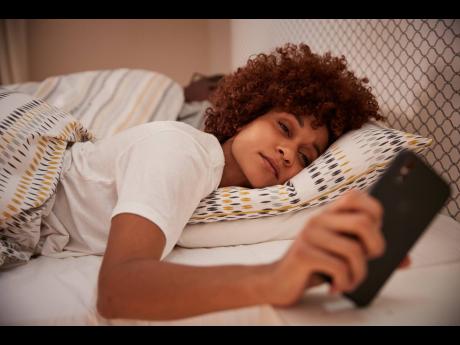Jamaicans not getting enough sleep
Jamaican adults are sacrificing their sleep, and the consequences are silently wreaking havoc on their mental health, according to research student at The University of the West Indies, Mona, Alexi-Jade Lyew.
Lyew, who conducted the study as part of her master's research, revealed that Jamaican adults average just 6.26 hours of sleep per night, which falls short of the World Health Organization's (WHO) recommendation of 7-8 hours.
"Sleep is essential for maintaining both physical and mental well-being, yet our findings show that Jamaicans are sleeping below the recommended duration," Lyew said.
The study involved 347 participants, predominantly women, with an average age of 31. It showed that while sleep duration is important, sleep quality plays an even greater role in mental health outcomes. On a scale of 0 to 10, with 10 being the highest, participants rated their sleep quality at an average of 5.72. Lyew described the rating as "fair."
"Poor sleep patterns can exacerbate mental health issues, and this underscores the urgent need for public health initiatives focused on improving sleep habits among Jamaicans," Lyew emphasized.
The UWI graduate student, whose work focused on 'Sleep Duration and Quality and their Associations with Depression and Anxiety Symptoms', was a presenter at the 'Dying to the Beautiful' symposium at the university on Friday. Makayla Ramlochan, Nasima Reyes, Akosua Gyimah, Robyn Brown, Dr Chelsi Ricketts, Dr Andre G. Bateman contributed to the research.
Lyew on Friday said that insufficient sleep and poor-quality rest are fuelling the high rates of anxiety and depression seen across the island, with 30 per cent of Jamaican adults reporting moderate to severe depression symptoms.
Lyew pointed to several contributing factors for sleep issues, including socio-economic stress, lifestyle habits, and environmental challenges like noise pollution and overcrowding.
"We need to address these barriers through targeted interventions that promote consistent sleep schedules and improve access to mental health resources," she said.
Globally, the WHO estimates that 40 per cent of people suffer from insufficient sleep, and the local data reinforces that sleep deprivation is a growing public health concern in Jamaica.
Lyew's findings also revealed that women are more likely to experience higher levels of anxiety, which she attributed to a combination of hormonal and social pressures.
She proposed several solutions, including public health campaigns to educate Jamaicans on the importance of sleep and community programmes aimed at improving sleep hygiene.
"Improving sleep duration and quality isn't just about feeling rested, it's about transforming lives and ensuring mental well-being for all Jamaicans," the UWI researcher said.







































